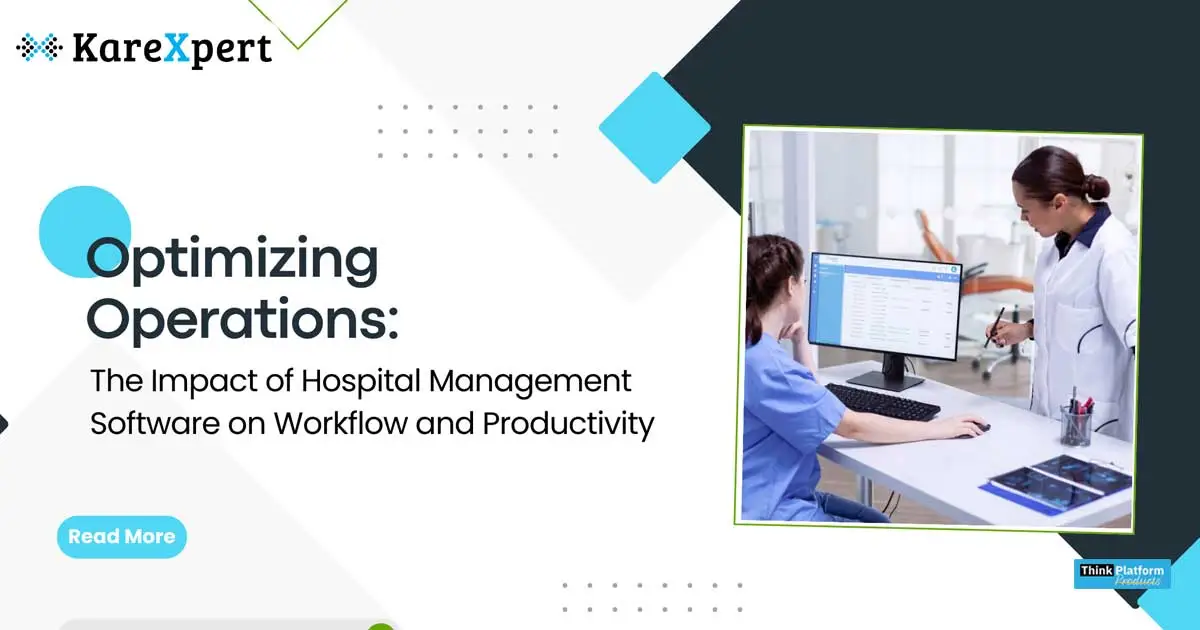Optimizing Operations: The Impact of Hospital Management Software on Workflow and Productivity

In the dynamic world of healthcare, hospital information management software has emerged as a transformative force, redefining the core of clinical operations. The integration of advanced hospital management tools has not only optimized workflows but also substantially increased the productivity of healthcare facilities. This blog will explore how these technologies are revolutionizing hospitals and the healthcare industry at large.
Introduction to Hospital Information Management Software
Hospital information management software is ingeniously designed to merge several administrative and clinical data processes into a unified system. It supports a wide range of hospital operations including patient management, appointment scheduling, billing, inventory control, and more. Such an approach to hospital management ensures that there is a smooth flow of information across different departments, which is crucial for delivering quality care to patients.
Streamlining Administrative Tasks
The first major impact of utilizing hospital information management software is seen in the way it streamlines administrative tasks. The days of laborious, paper-centric systems are dwindling as healthcare facilities adopt electronic processes that offer accuracy and accessibility. The software automates routine tasks such as patient registration, appointment bookings, and even billing, leading to a significant reduction in administrative workload and time spent on manual data entry. This freed-up time allows administrative staff to focus on tasks that directly improve patient experience and care.
Enhancing Patient Care
A crucial benefit of hospital management software is the improvement it brings to patient care. By automating data entry and archiving patient records electronically, the software minimizes human error and ensures that medical professionals have up-to-date and accurate information at their fingertips. Healthcare providers can access a patient’s complete medical history, current medications, allergies, laboratory results, and more, leading to more informed decisions regarding treatment options. This integrated approach not only enhances patient outcomes but also speeds up the entire treatment process.
Optimizing Inventory Management
The inventory management module of hospital information management software deserves special mention for its role in optimizing operations. It provides healthcare facilities with real-time information about medical supplies and equipment. Hospitals are therefore better equipped to manage their stocks, avoiding shortages that can compromise patient care or excess that results in wastage. This precision in managing hospital inventory supports a lean operation, which is both cost-effective and efficient.
Improving Interdepartmental Communication
Another significant improvement brought on by hospital management software is enhanced interoperability. Interdepartmental communication is vital for the smooth operation of any hospital, and modern software solutions ensure this with remarkable efficiency. For instance, laboratory results can be directly uploaded onto a patient’s electronic health record and made accessible to the attending physician almost instantaneously, reducing turn around times for diagnostic decisions.
Simplifying Billing Processes
Within healthcare facilities, the billing process often tends to be intricate and cumbersome. However, hospital information management software simplifies this by integrating the billing system with other operational modules. This synchronization ensures that all services rendered are accurately billed and reconciled, streamlining financial workflows, and improving the revenue cycle. It also handles contractual agreements with insurance companies, allowing for more accurate and timely claims processing.
Challenges in Implementation
However, implementing hospital information management software isn’t without its challenges. The primary struggle is often the initial financial investment and the need for training staff to effectively use the new system. Despite these obstacles, the long-term productivity benefits far outweigh the initial costs and effort required to transition to an automated system.
Future Trends and Innovations
The future of hospital operations lies in the continuous innovation of hospital information management software. As Artificial Intelligence and Machine Learning technologies further mature, they will likely be incorporated into these systems to provide predictive analytics, and improve clinical decision support and patient care pathways.
Conclusion
In conclusion, hospital information management software is indispensable in today’s healthcare environment. Its impact on workflow optimization and productivity enhancement cannot be understated. It allows for the integration of various hospital services, resulting in streamlined operations, reduced human error, and improved patient outcomes. By embracing these digital tools, healthcare providers are setting new standards in operational efficiency—and ultimately—patient care. As the industry continues to evolve, the role of hospital management software will only grow more vital, heralding a future where technology and healthcare go hand in hand.
